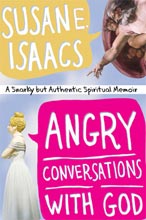 I certainly was unabashedly harsh in my review of the indie hit “Fireproof” a few weeks ago. Despite its grassroots success, the overtly religious and way-too-cheesy drama about a firefighter’s last ditch attempt to save his marriage is not what I hope for when I think of the future of Christians in filmmaking. And I have certainly received enough emails since that review from pastors who all wanted to tell me about how that movie has helped save marriages. But while I realize couples with marital problems are the primary target of this movie, I would like to put forth the theory that now that this movie is on DVD it is having a significant impact on a completely different age group– specifically teens and college students–and I am finding their response to the film fascinating.
I certainly was unabashedly harsh in my review of the indie hit “Fireproof” a few weeks ago. Despite its grassroots success, the overtly religious and way-too-cheesy drama about a firefighter’s last ditch attempt to save his marriage is not what I hope for when I think of the future of Christians in filmmaking. And I have certainly received enough emails since that review from pastors who all wanted to tell me about how that movie has helped save marriages. But while I realize couples with marital problems are the primary target of this movie, I would like to put forth the theory that now that this movie is on DVD it is having a significant impact on a completely different age group– specifically teens and college students–and I am finding their response to the film fascinating.
I have had several small group, one-on-one, and classroom conversations with students of varied ages regarding this movie lately. In fact, my jaw dropped to the ground when in each conversation, students quickly told me they loved it. Not liked it, loved it. They also were appalled that I didn’t like it quite so much. Not all of these teens are Christian, or even have much exposure to a religion in some cases. In other cases, the students I have been talking with come from Christian homes but have still been caught in the crossfire of a divorce. All of these teens admit that the movie has obvious flaws, and no one has told me of any sudden conversions to Christianity after seeing the movie, yet all of them are equally unafraid to declare their passion for the film. When I tried to get them to articulate why, it seems to come down to one thing: They want to have faith in uncynical, unconditional love in a cynical world.
These are young adults who have grown up with terrorist attacks, war, and a technology-glutted culture where economic pressures are now causing their future dreams to crumble. That is a lot to be cynical about. And yet, in an unguarded moment, I heard over and over again teens giving voice to the possibility that there might be something different to cling to.
So while I’ll stand by my review, I admit I am rethinking the notion that there is nothing to be learned from this film. I think if Hollywood and the church community really want to have cultural dialogue, I suggest they start here, examining a postmodern millennial generation’s deep thirst to believe that lasting commitment is possible and is not exclusive of passion, in spite of all evidence they have witnessed to the contrary.



